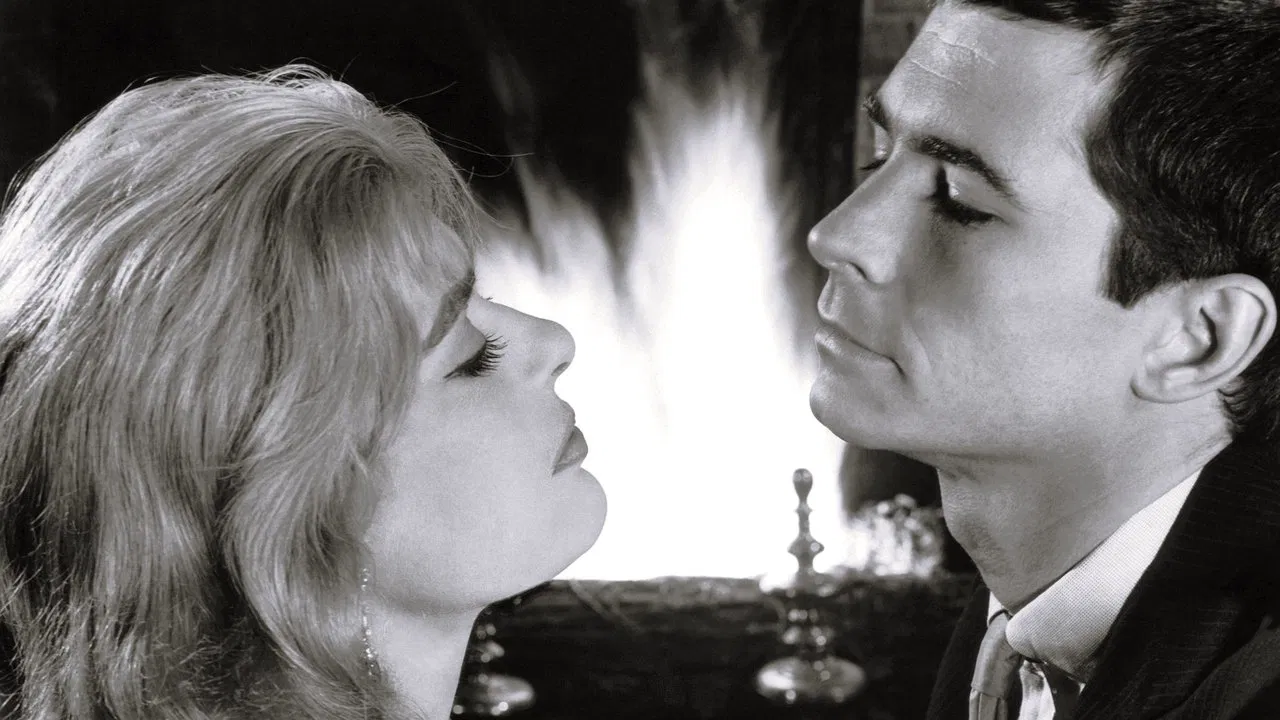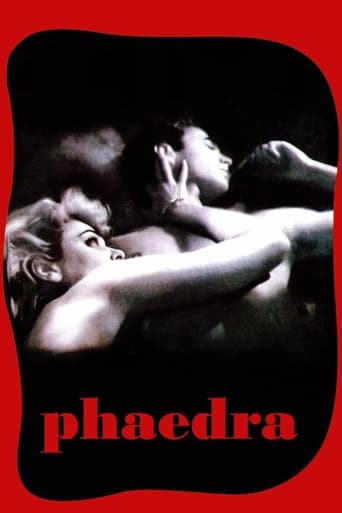

A different way of telling a story
... View MoreThe performances transcend the film's tropes, grounding it in characters that feel more complete than this subgenre often produces.
... View MoreI wanted to like it more than I actually did... But much of the humor totally escaped me and I walked out only mildly impressed.
... View MoreIt is interesting even when nothing much happens, which is for most of its 3-hour running time. Read full review
... View MoreI watched this film last night for the second time in my life. Being someone who grew up in the 60s and 70s, I'm used to - and rather fond of - the films of that time. And I like Dassin. I enjoyed Topkapi and I ADORE Rififi. But I found this film did not age very well. The acting is unnatural and over the top, which turns the film into a melodrama rather than a tragedy.They made a lot of fuss about Mercuri in those days. She was considered to be one of those "not beautiful, but fascinating" women. Maybe she was, but I always thought her a rather alarming female, with her decidedly masculine face, the nearly demented intensity of her eyes, her guttural voice and her strident laugh. Then again, I am a woman myself, so maybe it's just that her 'je ne sais quoi' is lost on me. I would not have chosen Perkins to play Alexis, as I never considered his type to be the sort that ignites an overwhelming passion in a woman's heart. But that might be just my personal taste. I liked the way Dassin did the love scene between Alexis and Phaedra. Truly beautiful and erotic, without all the biology text-book, clinical details they inflict on us these days. And Theodorakis' soundtrack is spot on (he is Greek, after all).All in all, this is the sort of film that I watch more for nostalgic reasons than anything else. But I would not put anything on hold for it.
... View MoreHold on to your seats---I am about to say something rather mean. Although Melina Mercouri often played sexy ladies in the 1960s, I always thought she was highly...well...not sexy (I am trying to be nice here). So, seeing her as a super-desirable vixen in a film like "Phaedra" has its work cut out for it, as I just found this aspect of the film very difficult to believe (Anthony Perkins was far more believable in his role of a heterosexual in this film). Apparently once again, the fine director, Jules Dassin, felt compelled to put his girlfriend (and later, wife) in such a leading role. I know it's all rather nasty...but I couldn't help but think this as this classical story was retold. However, despite all this, the film was, at times, very sexy--showing the director did have a lot of skill (Dassin made several amazingly good films during his great career).Like various ancient versions of "Phaedra", the story is about a young man falling in love with his step-mother. In this film, this didn't quite work, as the pair seemed to very inexplicably fall for each other--and way too quickly. In some of the classical versions, the pair was cursed by the gods--and that is why they fell madly in love. I think this latter way of writing the story actually works a lot better and makes this mad love seem more convincing. The sour note was the ending--Anthony Perkins seemed to overact a bit at the very end. Otherwise, an interesting reinterpretation of the old story--and worth seeing.
... View MoreAnthony Perkins has two loves -- Melina Mercouri and an Aston-Martin DB4 -- and it's hard to tell which is more spectacularly hard, fast and beautiful. I've never been a fan of Mercouri, with her mask-like face and disembodied guttural voice, but she's ideally cast as the heroine of this modern dress Greek tragedy, and she moves through the starkly gorgeous Hydra landscape like a queen. Story, setting, costumes and photography have never done an actress more favors; inhuman as she is, you can't look away. When she snarls "I don't care if the whole world burns!" you not only believe it, you want to watch it with her. Dassin's direction is very assured throughout, for example staging a technically difficult scene on the Aegean where Raf Vallone's helicopter circles over Mercouri on their yacht and he drops flowers on her, and in such a way that we register only the outsized emotions. Two other standout moments have been noted extensively in the other comments: the stunningly filmed love scene by the fire and Perkins' final ride in the Aston-Martin, in which he dares and brings off the most wildly over-the-top scene of his career. True, he doesn't seem man enough for Mercouri, especially next to Vallone, but that's part of what makes it a tragedy.
... View MoreFrom the opening scene with Phaedra (Melina Merouri) seen through a well-filtered lens, her head swathed in a net type turban, she was never more beautiful. No course features, just a gorgeous woman.The fireplace love scene/seduction lives in my memory forever, same as the scene with Perkin's screaming down the twisted highway in the expensive sports car as we hear Bach's music thundering in our ears..One part I've not heard anyone talk about is Mercouri's relationship with her female "companion" played as I recall, by Olympia Papakadas sp?..as Phaedra prepares for an afternoon nap. Until that scene, I could never understand a woman/woman relationship but it was so beautifully done, from then on I did have understanding.I've looked for decades trying to find this film to purchase..no luck. Hope one day it will be made available!
... View More